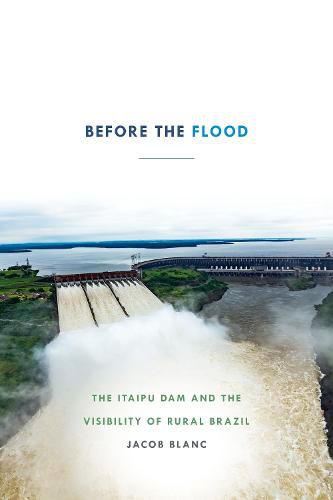Readings Newsletter
Become a Readings Member to make your shopping experience even easier.
Sign in or sign up for free!
You’re not far away from qualifying for FREE standard shipping within Australia
You’ve qualified for FREE standard shipping within Australia
The cart is loading…






In Before the Flood Jacob Blanc traces the protest movements of rural Brazilians living in the shadow of the Itaipu dam-the largest producer of hydroelectric power in the world. In the 1970s and 1980s, local communities facing displacement took a stand against the military officials overseeing the dam’s construction, and in the context of an emerging national fight for democracy, they elevated their struggle for land into a referendum on the dictatorship itself. Unlike the broader campaign against military rule, however, the conflict at Itaipu was premised on issues that long predated the official start of dictatorship: access to land, the defense of rural and indigenous livelihoods, and political rights in the countryside. In their efforts against Itaipu and through conflicts among themselves, title-owning farmers, landless peasants, and the Ava-Guarani Indians articulated a rural-based vision for democracy. Through interviews and archival research-including declassified military documents and the first-ever access to the Itaipu Binational Corporation-Before the Flood challenges the primacy of urban-focused narratives and unearths the rural experiences of dictatorship and democracy in Brazil.
$9.00 standard shipping within Australia
FREE standard shipping within Australia for orders over $100.00
Express & International shipping calculated at checkout
In Before the Flood Jacob Blanc traces the protest movements of rural Brazilians living in the shadow of the Itaipu dam-the largest producer of hydroelectric power in the world. In the 1970s and 1980s, local communities facing displacement took a stand against the military officials overseeing the dam’s construction, and in the context of an emerging national fight for democracy, they elevated their struggle for land into a referendum on the dictatorship itself. Unlike the broader campaign against military rule, however, the conflict at Itaipu was premised on issues that long predated the official start of dictatorship: access to land, the defense of rural and indigenous livelihoods, and political rights in the countryside. In their efforts against Itaipu and through conflicts among themselves, title-owning farmers, landless peasants, and the Ava-Guarani Indians articulated a rural-based vision for democracy. Through interviews and archival research-including declassified military documents and the first-ever access to the Itaipu Binational Corporation-Before the Flood challenges the primacy of urban-focused narratives and unearths the rural experiences of dictatorship and democracy in Brazil.